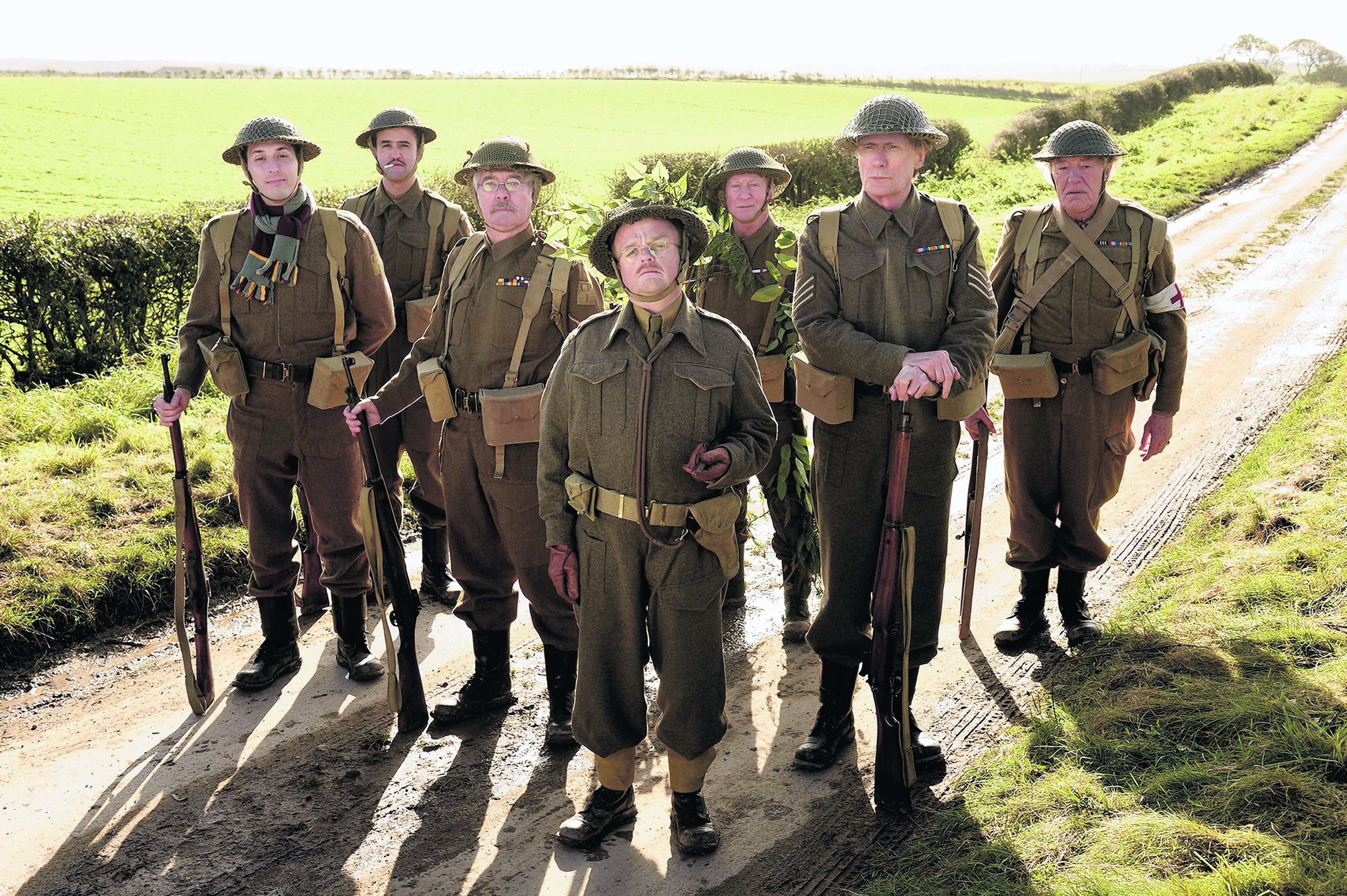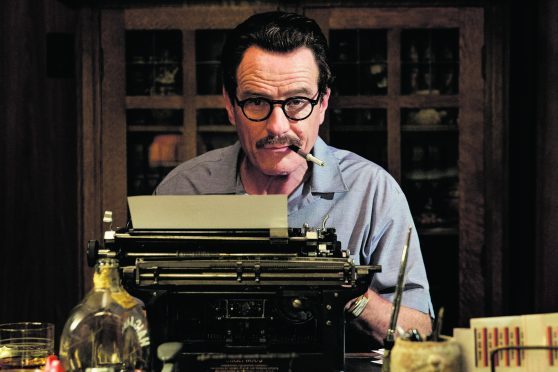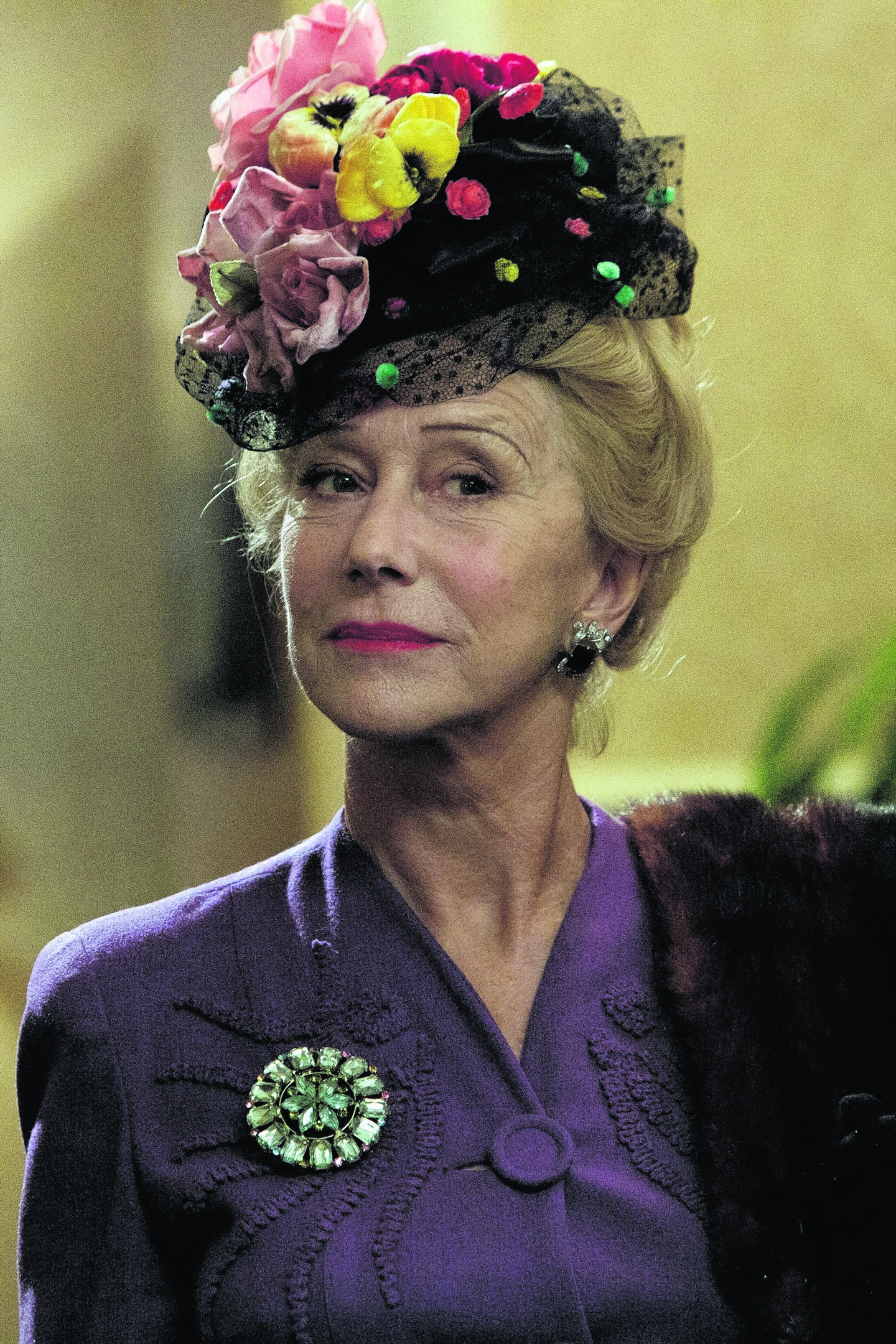TRUMBO (15)
4 stars
Hollywood is in the throes of a highly publicised civil war about ethnic diversity.
Filmmakers have vowed to boycott this month’s Academy Awards in protest at the lack of black actors among nominees, prompting sweeping reforms to the voting membership.
In 1947, it wasn’t race relations that pitted the great and the good of California against one another; it was the perceived threat of communists, who could use the big screen to spread their pernicious propaganda.
Membership of the Communist party was not illegal, but various figures behind and in front of the camera were called before the house un-American activities committee to testify about their political affiliations and to name and shame communist sympathisers within the ranks.
A group of screenwriters, producers and directors were so incensed by this challenge to their first-amendment right to freedom of thought and speech, that they refused to give direct answers to the committee.
These so-called rebels became The Hollywood 10 and were blacklisted by the studios for more than a decade.
Among them was Dalton Trumbo, who secretly penned Oscar-winning scripts to Roman Holiday and The Brave One during his time in exile.
Jay Roach’s handsome period drama, based on the biography by Bruce Cook, relives this inglorious period of paranoia and suspicion, when a few brave men stood up for their rights and suffered horribly.
Trumbo (Bryan Cranston) enjoys a charmed life with his wife, Cleo (Diane Lane), and three children, Niki (Elle Fanning), Chris (Mattie Liptak) and Mitzi (Becca Nicole Preston), until waspish columnist Hedda Hopper (Helen Mirren) casts aspersions on his political leanings.
Actor John Wayne (David James Elliott), elected president of the Motion Picture Alliance for the Preservation of American Ideals, weighs in on the argument and Trumbo is held in contempt by Congress.
While some people sever
ties with Trumbo to protect their careers, low-budget filmmakers Frank (John Goodman) and Hymie King (Stephen Root) happily employ the venerated writer to polish their B-movies.
“They need scripts like an army needs toilet paper,” quips Trumbo.
Leading man Kirk Douglas (Dean O’Gorman) also uses his influence to secure the writer a seat at the Spartacus table, despite protestations from advisers.
Distinguished by a tour de force Oscar-nominated performance from Cranston, Trumbo is a fascinating portrait of a time when suspicion could end a promising career.
Mirren savours every bile-drenched line of her finely dressed antagonist, in sharp contrast to Lane’s warm portrayal of a supportive, self-sacrificing wife.
John McNamara’s elegant script glisters with snappy one-liners – “He’s trying to sell his soul, but can’t find it” – that recall a golden era when substance complemented style.
Roach’s film serves up a silky-smooth, intoxicating cocktail of both.

DAD’S ARMY (PG)
3 stars
How do you improve on the perfection of Jimmy Perry and David Croft’s sitcom Dad’s Army, which began active service in 1968 and remains a jewel in the crown of the BBC comedy archives?
You don’t.
If you’re director Oliver Parker and screenwriter Hamish McColl, you pepper a flimsy plot that would barely stretch to one TV episode, let alone 100 minutes, with the show’s catchphrases and pray our abiding affection for the characters will compensate for long passages without a discernible punchline.
Original cast members Ian Lavender and Frank Williams are conscripted to cameo roles to heighten the whiff of nostalgia.
Limp innuendo-laden banter about sausages barely merits a smirk, pratfalls are predictable and a terrific ensemble cast of gifted comic actors go on patrol without an arsenal of decent one-liners.
From uninspired beginning to muddled end, it’s a cultural smash’n’grab that goes through the motions and will be remembered ultimately as a badly missed opportunity.
England, 1944.
World War II is on a knife edge and in the cosy community of Walmington-on-Sea, blustering bank manager George Mainwaring (Toby Jones) proudly leads the local Home Guard.
His hapless rank and file includes Sergeant Wilson (Bill Nighy), Lance Corporal Jones (Tom Courtenay) and Privates Frazer (Bill Paterson), Pike (Blake Harrison), Walker (Daniel Mays) and Godfrey (Michael Gambon), a mild-mannered soul who frequently drifts off into his own world.
The fate of the Home Guard hangs in the balance when Colonel Theakes (Mark Gatiss) reveals that he intends to sort the military wheat from the chaff and “Walmington feels chaffy.”
Soon after, Mainwaring learns that a German spy has infiltrated the town and is transmitting secrets back to Berlin.
This search for a traitor coincides with the arrival of glamorous magazine writer Rose Winters (Catherine Zeta-Jones), who intends to pen a flattering article about the heroics of the Home Guard.
George is smitten and finds Rose most charming and agreeable.
“They said that about the Ripper,” coldly retorts Mrs Mainwaring (Felicity Montagu), hard-nosed leader of Walmington-on-Sea’s Women’s Auxiliary Army, which includes Pike’s mother (Sarah Lancashire) and Walker’s sweetheart Daphne (Emily Atack).
Dad’s Army opens with a limp set-piece involving a stand-off between the Home Guard and runaway livestock.
“We’re supposed to be locking horns with the Hun, not Bertie the bull,” despairs one of the men, echoing our mounting frustration.
Jones lightens the darkening mood with a few moments of physical humour, including choking on a slice of cake, while Nighy relies on his usual snorts and tics for merriment.
Montagu, Lancashire and co bring a diluted degree of girl power to proceedings that might be dismissed as tokenism without their characters’ pivotal involvement in the hare-brained and lacklustre denouement.

